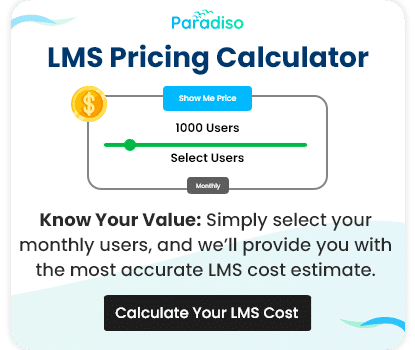Essential Questions to Ask LMS Vendors
When evaluating LMS vendors, asking the right questions is vital to confirm that your chosen platform will support your organization’s compliance and security goals. Below, we outline key “Hipaa Questions” and other important queries to consider:
1. Can You Provide Documentation of HIPAA Compliance?
What to Ask:
Request copies of HIPAA risk assessments, compliance certificates, detailed audit reports, and breach notification procedures. Inquire about the most recent internal and external compliance reviews.
Why It Matters:
Verifiable documentation proves the vendor’s commitment to upholding HIPAA standards. Transparent records of compliance efforts help instill confidence among stakeholders and ensure that all regulatory requirements are met.
2. How Do You Ensure Data Security and Encryption?
What to Ask:
Delve into the encryption protocols used by the vendor. Ask for details about how data is encrypted both in transit and at rest. Explore the physical, technical, and administrative safeguards that protect PHI.
Why It Matters:
Advanced encryption and comprehensive security measures are fundamental to protecting sensitive healthcare data from unauthorized access and cyber threats. This is especially critical for the best LMS software, which must meet stringent HIPAA standards.
3. Do You Have a Breach Response Plan in Place?
What to Ask:
Request a detailed explanation of the breach response plan. This should include the steps taken immediately following a breach, investigative procedures, and communication protocols to notify affected parties.
Why It Matters:
A proactive breach response plan minimizes damage and maintains trust. Knowing that the vendor can quickly address and remediate any security issues is essential for protecting both patient data and organizational reputation.
4. What Access Controls and User Authentication Methods Do You Offer?
What to Ask:
Confirm the availability of granular access controls, user role definitions, and permissions. Inquire about authentication methods such as SSO, MFA, and integration with directory services like LDAP or Active Directory.
Why It Matters:
Effective access controls are crucial for ensuring that only authorized individuals can access sensitive data. This minimizes the risk of insider threats and ensures that data is handled securely at all levels.
5. How Do You Handle Data Backups and Disaster Recovery?
What to Ask:
Request an overview of the vendor’s data backup and disaster recovery protocols. Ask about the frequency of backups, storage locations (both onsite and offsite), and the procedures for restoring data in the event of an incident.
Why It Matters:
Robust backup and disaster recovery strategies ensure that your organization can quickly recover from data loss events. This continuity is vital for maintaining operational efficiency and protecting patient data integrity.
6. Can You Provide Examples of Past HIPAA Compliance Success Stories?
What to Ask:
Ask for case studies or references from healthcare organizations that have successfully maintained HIPAA compliance with the LMS. Look for detailed success stories that highlight the tangible benefits of the platform.
Why It Matters:
Real-world examples assure that the vendor has a proven track record. These success stories can also offer insights into how the LMS has been adapted to meet specific compliance challenges.
7. How Often Do You Update Your Security Measures to Adapt to New Threats?
What to Ask:
Inquire about the frequency and process of system updates, including security patches and enhancements. Ask how the vendor stays current with evolving cybersecurity threats and HIPAA regulatory changes.
Why It Matters:
Regular updates are essential to protect against emerging threats and ensure ongoing compliance. This proactive approach is a hallmark of the best LMS software, which continuously evolves to meet modern security demands.













